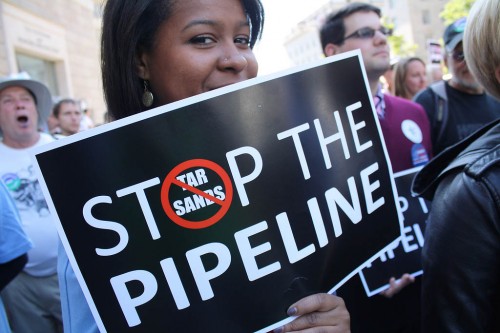Killing Keystone Won't Reduce Oil Use

In my column for the National Post I explain why ending the Keystone XL pipeline won't reduce the amount of oil people consume:
The true locus of opposition to the pipeline is not Nebraska, but California, where big liberal environmentalist donors have seized on the pipeline as a talismanic cause. These California environmentalists do not want to redirect the pipeline. They want to stop it altogether, so as to leverage an end to further Canadian oilsands development.
What will curtailing oilsands accomplish for the environment? Nothing. This is a big planet full of oil, and if the United States does not buy its oil from Canada, it will buy its oil from somebody else.
So long as demand runs high, oil will be imported and burned. And it's not like pumping the oil from the Gulf of Mexico, or transporting oil from the Middle East in tankers, is exactly environmentally risk-free.
Getting off oil means changing the way Americans use oil. That change requires a change in incentives: A permanently higher oil price that will encourage Americans to live closer to work, to build their cities denser, to prefer more fuel-efficient vehicles, to convert their bus and truck fleets to natural gas, and so on.
Price incentives work. The oil shocks of the 1970s cut American oil use dramatically. As late as 1995, Americans were still using less oil than they did in 1978 - even as they drove many more miles.
High prices persuaded homeowners to switch to gas heat. High prices and well-timed deregulation shifted U.S. freight transportation from truck to rail. High prices jolted U.S. utilities to stop burning heavy oil to power electrical generators.
But after 1996, low prices ended this conservation era. Oil use surged for the next decade.
Yet markets continue to work. Higher prices since 2006 have again changed behavior. Americans are driving fewer miles. They are retiring more cars than they buy. They are opting again for smaller, fuel-efficient vehicles. They are buying smaller homes, with a new emphasis on central city living. The recession has of course intensified all these trends.
Click here to read the full column.

